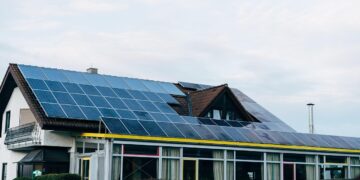Maximizing the Sun: Advantages and Challenges of Solar Energy
With the global push for cleaner, more sustainable energy sources, solar energy has surged to the forefront as a viable alternative to fossil fuels. This extensive examination of solar energy will uncover its numerous benefits, delve into its prevalent challenges, and propose insights into its future efficacy in the renewable energy landscape.
Understanding Solar Energy
Solar energy refers to the technology used to harness the sun’s energy and convert it into electricity. This is primarily achieved through photovoltaic (PV) panels or through concentrated solar power systems. As sunlight is abundant and renewable, it presents a significant source for electricity generation that can be tapped into globally.
Advantages of Solar Energy
Eco-Friendly Energy Source
The most prominent advantage of solar energy is its environmentally friendly nature. Unlike conventional power sources, solar power does not emit greenhouse gases or other pollutants, making it a clean energy source. This contributes significantly to the reduction of carbon footprints and combating climate change.
Reduction in Energy Bills
Installing solar panels on homes or businesses can result in substantial savings on energy bills. After the initial setup cost, the direct conversion of sunlight into electricity offers a free power source for the lifetime of the solar system, thereby reducing monthly utility expenses.
Incentives and Rebates
Many governments worldwide offer incentives for solar energy adoption, which can include rebates, tax benefits, and grants. These incentives not only make it more affordable to install solar systems but also shorten the payback period, making solar investments increasingly attractive.
Energy Independence
Solar energy can contribute to national energy independence. By reducing reliance on imported fossil fuels, countries can enhance their energy security and stabilize their energy prices while also supporting local job growth in the renewable energy sector.
Challenges of Solar Energy
High Initial Investment
While solar energy saves money over time, the initial investment for installing solar panels can be high. This includes costs for panels, inverters, batteries, wiring, and installation. However, the declining cost of technology and rising efficiency are gradually lowering these barriers.
Weather Dependent
The efficiency of solar systems is heavily dependent on weather conditions. Solar panels require sunlight to generate power, meaning their efficiency drops on cloudy or rainy days, which can be problematic in areas with frequent poor weather.
Energy Storage Costs
Storing solar energy for use during nighttime or overcast days requires batteries, which can significantly increase the overall cost of solar energy systems. Advances in battery technology and decreasing costs are essential for making solar more feasible for widespread use.
Space Requirements
The amount of electricity that can be generated is directly related to the number of panels installed. Solar panels typically require large areas for installation, particularly for higher energy needs, which can be a limiting factor in urban settings.
Integrating Solar Energy into the Grid
Integrating solar power into the existing energy grid presents technical challenges. Solar output can be unpredictable due to its dependence on the sun, necessitating advanced grid management and distribution systems to handle the fluctuations and maintain a steady power supply.
Future of Solar Energy
Technological advancements and increased government support are expected to continue driving the growth of solar energy. Innovations such as higher-efficiency solar panels, cheaper and more robust storage solutions, and AI-enhanced energy management systems are poised to tackle the current challenges faced by solar power.
Conclusion
The journey of solar energy from a niche alternative to a mainstream power source is underway. Advantages like its non-polluting nature, declining costs, and ability to reduce energy bills make it an attractive option. However, challenges like high upfront costs, dependency on weather, and integration into the power grid need to be addressed to maximize its potential fully. By continuing to support technological innovation and offering economic incentives, the adoption of solar energy will likely increase, leading to a more sustainable and secure energy future.
In conclusion, while there are hurdles to overcome, the potential benefits of widespread solar energy utilization are significant, signalling a bright future for solar technology in the global energy market.
Empowering society to harness the power of the sun effectively not only promises environmental and economic improvements but also propels us towards a more sustainable planet.











